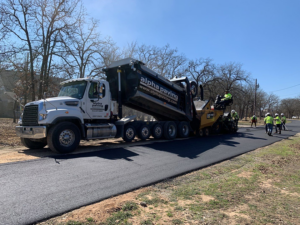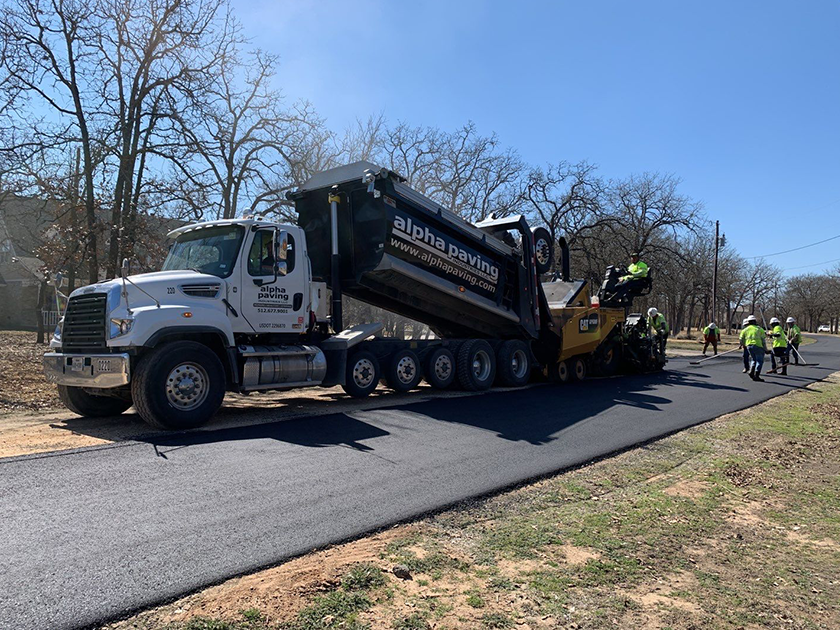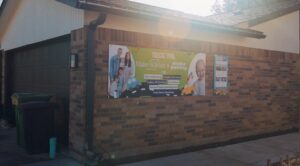 Asphalt is the leading choice for Austin paving projects of all types and sizes. Asphalt pavements cost significantly less than comparable concrete pavements, and asphalt is also faster to install. Repairs and routine maintenance procedures for asphalt pavements are similarly speedy and economical. One reason for asphalt’s popularity is its natural waterproofing properties. Therefore, many people expect to find standing water on the surface of their asphalt pavement after heavy rain. However, it is a problem if puddles of water are still present on your pavement more than a couple of hours after the rain stops; they could present hazards that could have financial repercussions for your business. The three areas of most significant concern are potential legal liabilities, pavement damage, and structural damage.
Asphalt is the leading choice for Austin paving projects of all types and sizes. Asphalt pavements cost significantly less than comparable concrete pavements, and asphalt is also faster to install. Repairs and routine maintenance procedures for asphalt pavements are similarly speedy and economical. One reason for asphalt’s popularity is its natural waterproofing properties. Therefore, many people expect to find standing water on the surface of their asphalt pavement after heavy rain. However, it is a problem if puddles of water are still present on your pavement more than a couple of hours after the rain stops; they could present hazards that could have financial repercussions for your business. The three areas of most significant concern are potential legal liabilities, pavement damage, and structural damage.
Why Standing Water Is a Hazard on Your Asphalt Pavement
How Could Standing Water on an Asphalt Pavement Turn Into a Legal Liability?
The legal system distinguishes between trespassers and invited guests when it comes to personal injury and property damage law. Suppose you sell to, provide services for, or are otherwise engaged in activities that require or encourage people to visit your business. In that case, the courts will consider them to be invited guests, and you have a legal responsibility to provide invited guests with a safe environment. If a pedestrian suffers an injury because of the standing water, he or she could sue you to recover medical expenses, lost wages, and other costs. Suppose a handicapped individual suffers an injury because the standing water was inside the boundaries of an accessible parking space or along the accessible travel route. In that case, you could potentially be facing additional fines. If the water damages a vehicle, the vehicle’s owner could sue you to recover the cost of repairs. Even if your business liability insurance covers these types of expenses, there are some additional consequences that you might face. For example, suppose people begin to consider your property unsafe. In that case, your customers could take their business to your competitor, your tenants might decide against renewing their leases, or your lack of pavement maintenance could seriously damage your reputation as a company that cares.
How Does Water on Commercial or Driveway Paving Cause Pavement Damage?
Commercial asphalt pavements take a beating. The parking lot at a major retail store or shopping mall may have thousands of cars coming and going every day, or the access drive leading to a busy warehouse may support hundreds of tractor-trailers. When there is standing water on the pavement, the tires on the vehicles that drive through it will exert pressure that can force the water into the pavement’s pores. This can lead to the development of cracks, but it can also result in the deterioration of the asphalt binder, leading to raveling, bleeding, or rutting. Although residential pavements do not typically need to support heavy weights or high volumes, they can still suffer the same types of damage from standing water.
What Do Austin Paving Company Representatives Mean When They Talk About Structural Damage to an Asphalt Pavement?
When a paving company constructs a new pavement, they do it in layers. The lowest layer is typically the subgrade, which is another name for the soil. The next layer is the foundation on which the pavement will depend for stability, strength, and resiliency. The contractor then places multiple layers of asphalt on top of the foundation. Asphalt paving companies compact each layer from the subgrade to the surface course as they build the pavement. All layers are part of the pavement structure, and damage to one layer can result in damage to other layers. For example, suppose a crack develops in the pavement, but no one calls for an asphalt repair. When it rains, water drips through the crack until it reaches the foundation, where the water plucks out pieces of the foundation material. The damage to the foundation leaves empty pockets of air between the pavement and the foundation. Lacking support, the pavement begins to sink, leaving depressed areas on the surface. As vehicles travel over these weakened areas, they can break up the pavement, leading to the formation of potholes. As the damage progresses, alligator cracking can occur. At some point, the pavement’s structural integrity becomes too compromised for asphalt patching, crack repairs, and asphalt sealer to provide enough help to save the pavement.
Contact Alpha Paving to Learn More
Whether you need a simple asphalt repair, a new parking lot, or routine paving maintenance, you can count of Alpha Paving for exceptional work. We offer an extensive range of asphalt and concrete services, including asphalt sealcoating, concrete flatwork, asphalt paving and overlaying, road construction, parking lot striping, asphalt repair and patching, thermoplastic pavement markings, asphalt milling, speed bump installation, asphalt crack repair, traffic signage, and street maintenance. Our clients include airports, shopping centers, hospitals, apartment complexes, municipalities, retailers, restaurants, HOAs, schools, hotels, manufacturers, subdivisions, churches, counties, and property management companies. For a free quote, fill out our online request form, or call our Round Rock office at 512-677-9001.




